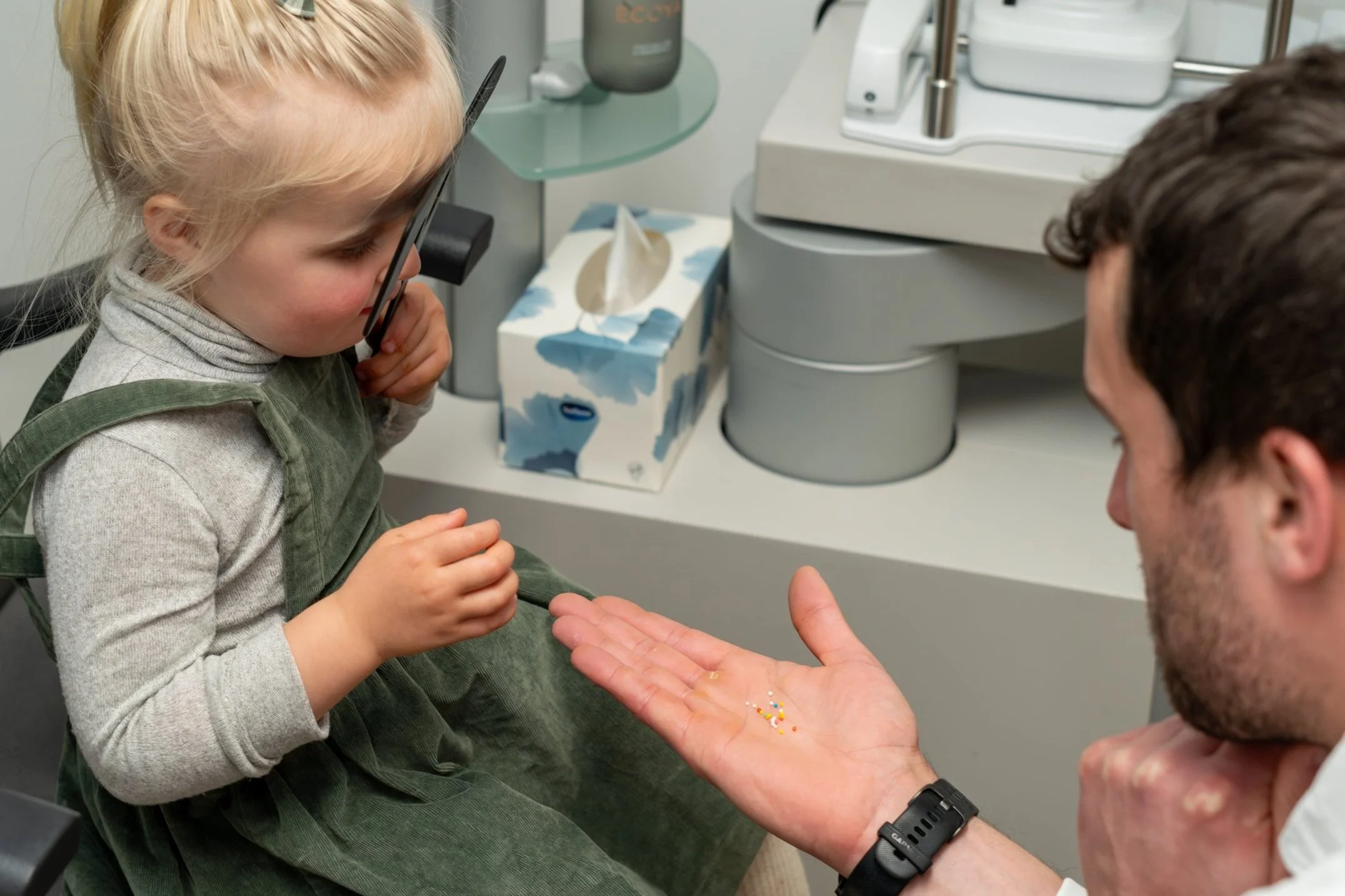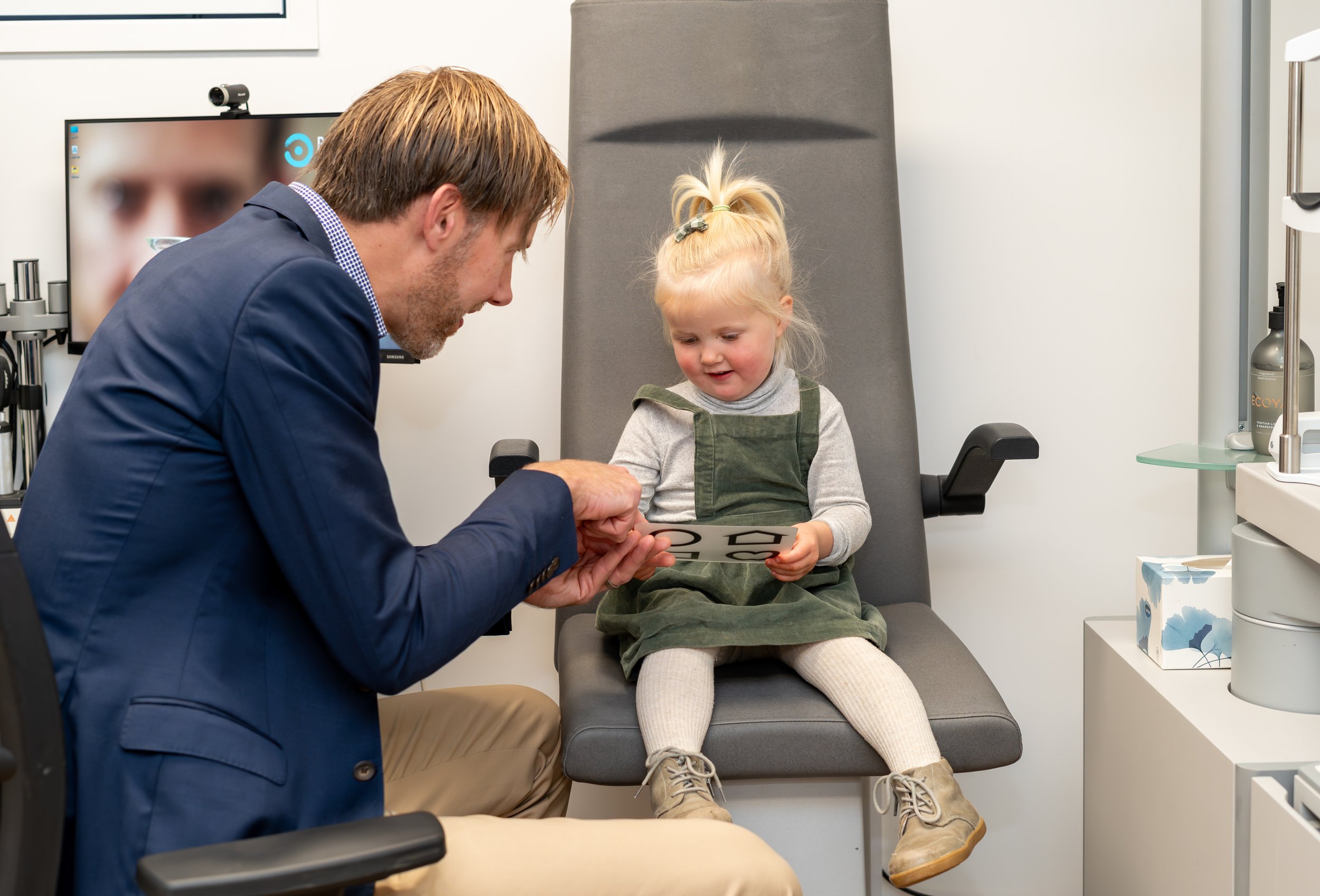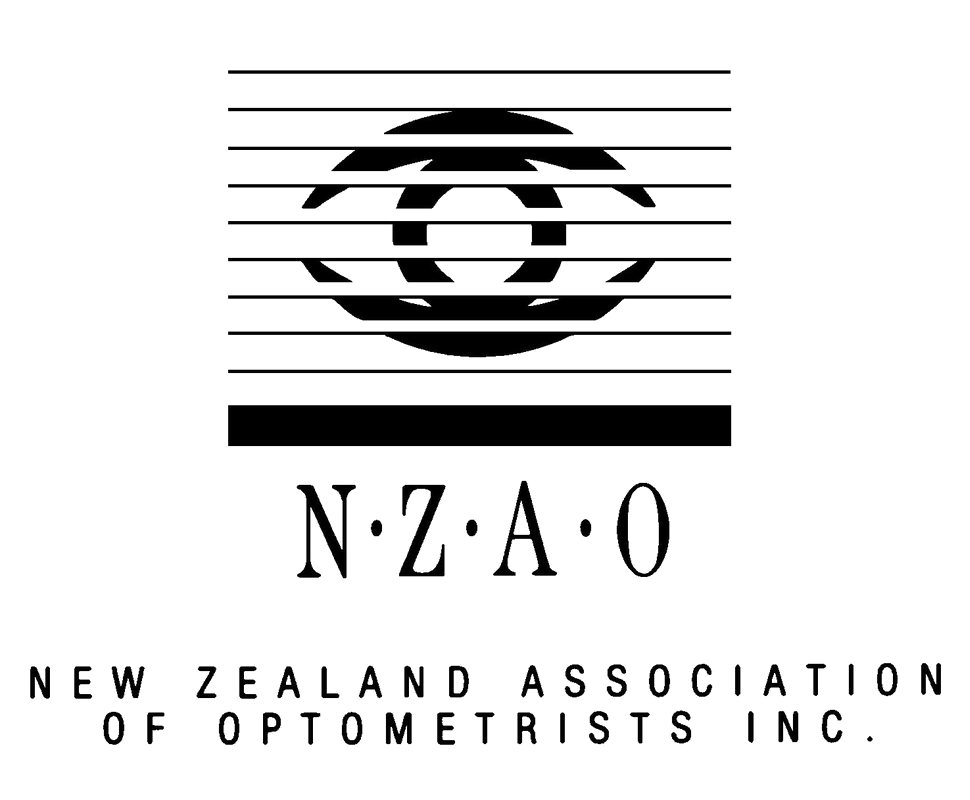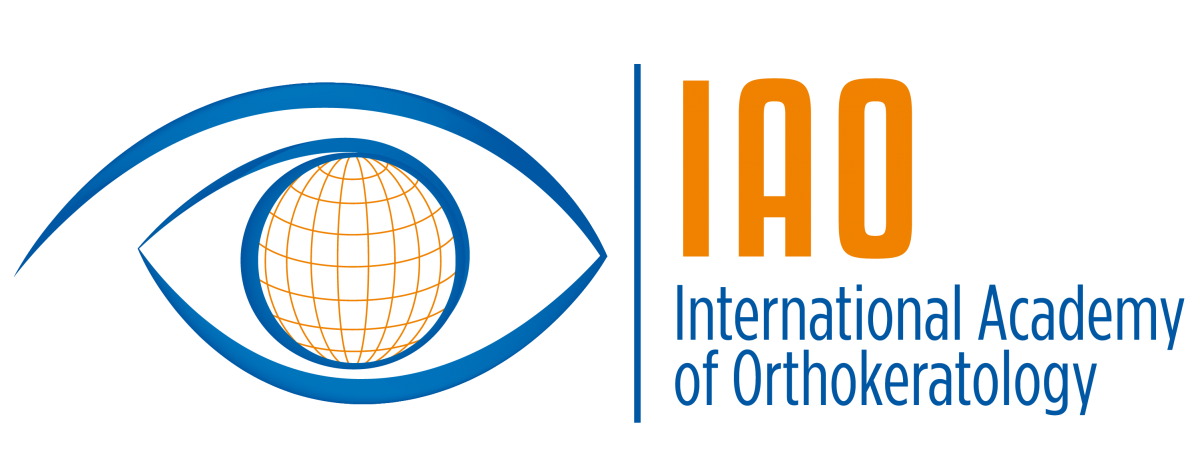We look after the vision of your children
A poorly functioning binocular vision system means that some children, without realising, only use one eye to see.
At Bay Eye Care we believe it is vital to look after the eye health and vision of our children.
Vision is more than just being able to see something clearly in the distance. Vision is a complex process that involves both eyes working together to provide information that the brain can correctly process and understand. There are a number of areas of vision that Bay Eye Care investigate and manage for our young patients.
Find out more about the signs of a child's vision problem here
There are many tricks to testing the vision of even the youngest child, including seeing if they can see individual 100s and 1000s!
Types of Children's Vision Problems
Refractive Errors - Eyes that do not focus correctly have refractive errors. These include short-sightedness (myopia - blur in the distance), long-sightedness (hyperopia - blur or strain up close) and astigmatism (when the front of the eye has a rugby ball shape). Refractive errors are generally corrected with spectacles, contact lenses or orthokeratology (overnight corneal reshaping). Leaving refractive errors uncorrected can result in blurred vision, eye strain and can even cause permanent vision loss if amblyopia (lazy eye) develops.
Myopia Control - Myopia or shortsightedness tends to start as a child and get worse until adulthood. This increases the risk of ocular disease later in life. At Bay Eye Care we are proactive to decrease the progression of myopia. For more information visit our myopia control page.
Amblyopia - When the vision system is developing (from birth until a child finishes primary school) both eyes have to see clearly so that the appropriate connections can be made in the brain. If one eye has a refractive error, or does not point in the same direction (strabismus) it may develop amblyopia (lazy eye). If amblyopia is not treated early enough permanent vision loss may occur which often is present for life. Amblyopia is treated in a range of ways including patching, spectacles, contact lenses and therapeutic eye drops in order to work the affected eye harder.
Our optometrist Alex demonstrating a common exercise for someone with convergence insufficiency (moving the eyes together to follow something as it comes towards them).
Binocular Vision Problems - Apart from seeing things clearly the vision system also has to be able to change its focus quickly and accurately, keep both eyes well aligned, and maintain this focus and alignment when the eyes are moving or if a child is tired. A deficit in these binocular vision skills may lead to blurred vision, double vision, eyestrain or headache, fatigue, poor balance, loss of concentration and problems with reading. Most of what we learn in the world is dependent on vision. It follows that any difficulty with these vision skills can affect a child's education. Fortunately many of these visual conditions can improve using particular vision training exercises. This is analogous to using physiotherapy exercises to rehabilitate a damaged joint back to normal function. Typically our optometrist will prescribe a range of exercises depending on the problem, review the progress and modify the exercises over time to improve the results. Even after full recovery, exercises may be needed on occasion in the future to keep your eyes well trained and working effectively.
Testing the stereopsis (3D vision) of a child at Bay Eye Care.
Your child may not tell you they have a vision problem as some vision changes can occur without you or your child noticing them. Your child should receive an eye examination at least once every two years and more frequently if recommended by your optometrist. The earlier a vision problem is detected and treated, the more likely treatment will be successful.
Signs that may indicate your child has a vision problem include:
Often blinking or rubbing their eyes
Exhibiting a short attention span
Avoidance of reading and any activity involving looking up close
Frequent headaches, especially around the eyes or the front of the head
Covering or closing one eye when reading - they may not realise they are doing it!
Tilting the head to one side
Holding reading materials up close or sitting close to the television
One eye noticeably turning out or in, especially when tired or stressed
Seeing double
Complaining of blurred vision at distance or near
Losing place on a page when reading
Difficulty remembering what they have read
Using Lea symbol matching to test the vision of a young child
Unfortunately, parents and teachers often incorrectly assume that if a child passes a school screening test, there is no vision problem. However, many school vision screenings only test for distance clarity. A child who can see small print in the distance can still have a vision problem. In reality, the vision skills needed for successful reading and learning are much more complex.
Even if a child passes a school vision screening test, they should receive a comprehensive optometric examination if:
They show any of the signs or symptoms of a vision problem listed above
They are not achieving up to their potential at school
They are minimally able to achieve at school, but have to use excessive time and effort to do so
Bay Eye Care takes the health and well-being of our younger patients very seriously. Click here to read our Child Protection Policy.










